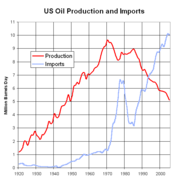It’s impossible to get clear numbers on how well this stuff works. Even Facebook and Google probably have no clear numbers, but they certainly have clear enough indications. Google obviously has a clear enough indication to reform their entire company around this. So we can assume it is real. It all seems plausible enough, right?
So we can easily assume that this trend will continue, and that Google and Facebook will correlate increasing amounts of data on us, our friends, our coworkers, and the people we encounter, and will sell this data to advertisers who will essentially be placing bets on our behaviour. If there is a 27% chance that a given couple will marry within the next nine months, then there is a 14% chance that each of their closest long-distance friends will want to buy a plane ticket to the ceremony. Therefore, as an advertiser, you buy a tranche of ads for people whose out-of-town friends are soon to marry. The MapReduce job is an exercise for Google’s new Malaysian coding shop, the tranche is sold to the highest bidder via AdWords. Bada-bing, ca-ching.
As a second-order effect, this advertising activity begins to affect the behaviour of these out-of-town friends. A measurable jump in the number of people attending out-of-town weddings results, and the price on these ads consequently rises. Advertising grows markets all the time, so this is not surprising.
Now we emerge into science fiction-ville. An analyst-bot for a huge trading firm is trawling the AdWords marketplace, looking for interesting tranches for which the price has become overweight, and happens upon the out-of-town weddings advertising market, which is suddenly hugely oversubscribed. It pops up on the screen of a junior analyst (of the human variety) who clicks through to approve the creation of a out-of-town weddings futures market, which the trading firm then (automatically) proceeds to sell to its customers, and then (automatically) takes a short position.
An analyst-bot for one of the advertising agencies flags this new offering, and raises it to the desk of the (human) product manager for this market. She promptly buys into the futures market, betting that the market will rise. She talks to an executive VP and gets approval to buy a large product placement with a popular television show to feature a destination wedding as an upcoming plot. She does not get approval for a proposed contribution to a PAC formed by the National Organization for Marriage, as the VP is gay and cites the growing market for same-sex weddings.
Of course, this assumes that the securitization of everything will continue apace. Certainly there has been no progress in stemming the tide, and I don’t expect it to happen (barring a bloody worldwide insurrection against the dominant economic order).
What are some other examples of the weird things that could result from social marketing combined with this level of financial automation?
- A new global baby boom triggered by businesses embracing new market development, caused by an algorithmic storm of projected demand for diapers, crude oil, softwood lumber, and manual labour. [The whole thing is triggered by a rounding bug in an Excel spreadsheet.]
- Investment banks engage in wide-scale manipulation of tampon supply futures indexes by using sponsored advertisements to influence birth control method preferences so that women favour Depo-Provera over oral contraceptives.
- The Corrections Corporation of America gets into a bidding war with Indian defense contractors on a cheap-labour-supply futures index, which is based on the relative probability of incarceration due to attempted drug sales by American teens. The Indian defense contractors are shorting this to offset their own risk (due to the effect of rural broadband penetration shortfalls on the gold mining talent pool), and the market becomes very volatile. To ease this situation, the CCA makes a large automated contribution to a tough-on-crime SuperPAC.
- Asperger's patients become a new hot dating commodity, as their profiles are moved to the top of the activity ranking by social networks who wish to boost their visibility to advertisers who are bidding extremely highly for their ad dollars. Social networks optimize their users lives to improve their value to advertisers. This results in nerds getting laid a whole lot more, and lots more little Asperger's-prone nerdlings (who have truly wonderful advertising potential).
Re-reading this hours later I realized that what I'm describing here is a much less rosy portrait of the same technological trends outlined by Bruce Sterling in his seminal short story Maneki Neko back in 1998. Except of course his story has excellent characterization, plot, and narrative drive.











